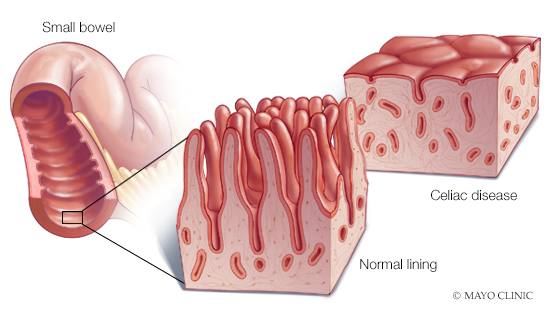-
Cancer
Understanding celiac disease

Celiac disease is an immune reaction to eating gluten, a protein found in wheat, barley and rye. If you have celiac disease, eating gluten triggers an immune response in your small intestine. Over time, this reaction damages your small intestine's lining and prevents it from absorbing some nutrients. The intestinal damage often causes diarrhea, fatigue, weight loss, bloating and anemia, and can lead to serious complications. In children, malabsorption can affect growth and development, besides causing the symptoms seen in adults. While there's no cure for celiac disease, for most people, following a strict gluten-free diet can help manage symptoms and promote intestinal healing.
On the next Mayo Clinic Radio program, Dr. Joseph Murray, a Mayo Clinic gastroenterologist, will discuss diagnosing and treating celiac disease. Also on the program, Dr. Amy Degnim, a Mayo Clinic breast cancer surgeon, will explain ductal carcinoma in situ, which is considered to be the earliest form of breast cancer. And Katherine Zeratsky, a Mayo Clinic registered dietician nutritionist, will offer tips for eating smart during the holidays.
To hear the program, find an affiliate in your area.
Use the hashtag #MayoClinicRadio, and tweet your questions.
Mayo Clinic Radio is on iHeartRadio.
Access archived shows or subscribe to the podcast.
Mayo Clinic Radio produces a weekly one-hour radio program highlighting health and medical information from Mayo Clinic.







